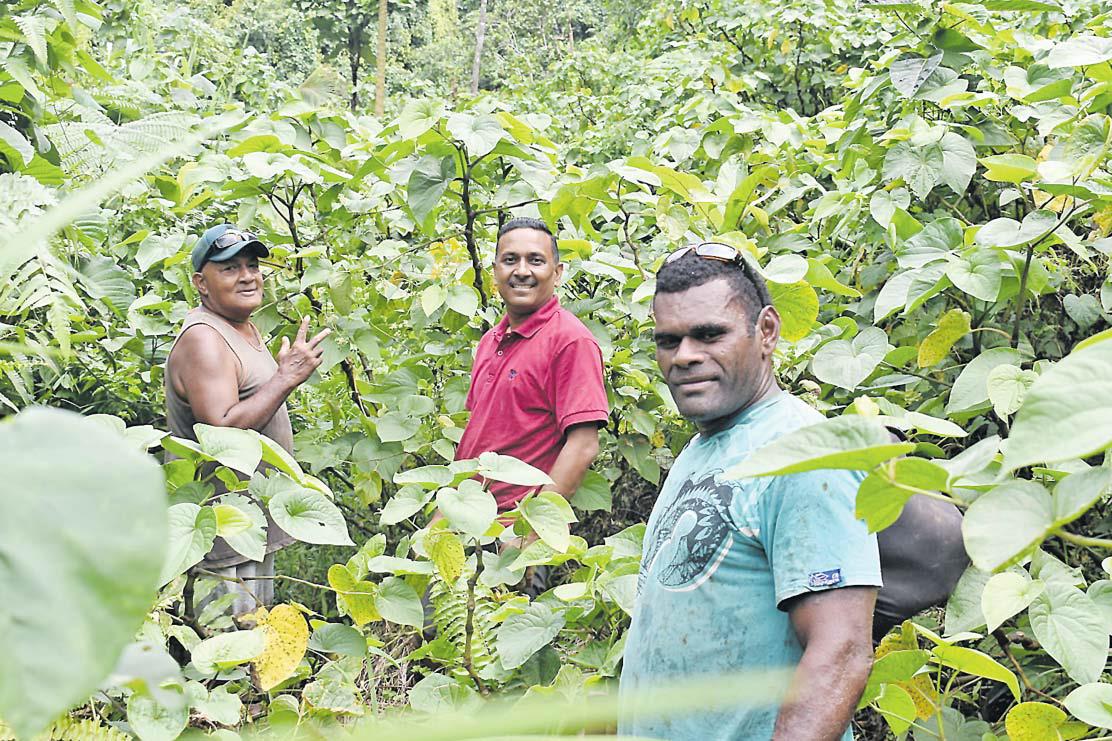A farm management training by the Ministry of Agriculture which began back in 2017 has led a group of youths to realise the potential of farming as a business.
Vuinadi Village is one of the six villages and 15 settlements that belong to the district of Koroalau and lies along the Natewa Bay in the province of Cakaudrove in Vanua Levu.
The district has the capability of producing taro (dalo) and yaqona (kava) for the export market, but is confined to the traditional farming practice.
Although this provided the necessities of life to the villages, there is a need to further enhance their engagement in farming.
Village assistant project manager Jasa Kadivuka said the training provided by the ministry led them to implement changes and start a group farm to benefit everyone.
The training by the North team was based on capacity building on farming as a business and sustainable land management practices.
Farm management officer (North) Niraj Lal said the training was to capacitate the farmers hence to up-skill the knowledge and build modern techniques in the agriculture business.
“There is a lot of potential for this area and tuning them in the right direction to see the bigger picture was essential,” said Mr Lal.
“The training combined with tree and root crops for food security awareness – farming to meet local market demand and most importantly to plan and manage their farms,” he said.
“The training for farmers created awareness. There was a lot of potential to extend farming and focus on development towards agricultural business,” said Mr Lal.
Through this training, the villagers of Vuinadi agreed to work together hence the formation of the youth group.
The Vuinadi Yaqona Farmers Group united on this project named Matakavou with the vision “Ko Vuinadi kei Karisito, Kina Mataka Vou”.
The village project was established in 2017 by the farmers group that started with 38 members and a piece of land that was identified in Warikoko for the project Matakavou and the group planted 1000 yaqona plants to start with.

“Starting stages were tough as we had to keep motivating members and the planting materials were hard to obtain. We encountered natural disasters along the way, but managed to pull through,” said Mr Kadivuka.
“The 1000 yaqona planted were part of our five-year plan to plant 3000 yaqona plants in 2017 and continue planting every year.”
The unity was such that farmers set aside Tuesday as the day to come together and attend to the project. $5 was collected from each farmer and was reinvested into the project for other needs.
Three years later the group that started with 1000 yaqona plants and 38 members bloomed into a membership of 43 including women and the project has more than 3000 three-year-old yaqona plants, 6000 two-year-old and 2000 one-year-old yaqona plants.
“It has been decided that the revenue would be used for obligations to the church, the vanua, the government and the tuitions of the village children,” he said.
“No harvesting will be done in the duration of the five years, we only have to increase the number of yaqona plants and the area planted.”
“We are doing what we love and loving what we do, seeing what is on the ground now we are thankful that we took the leap of faith back in 2017,” Mr Kadivuka said.
The Vuinadi farmers also affirmed the continuation of the achievement of their individual farming objectives.
“This five-year project is for the village and all its needs and the members also have their individual farms that they toil and it is amazing to see the urgency to farm in each individual.”
In addition to their yaqona farm, the group also planted dalo and cassava for members, payment of transportation to the farm and for village functions.
“Because of this COVID-19 restriction we could not visit the farm and it was unsettling so we drew a timetable of the required number of members to clean the farm,” he said.
Another bonus was the provision of the farm house as the distance of the farm from the village is quite far and having this farm house enabled them to spend more time on the farm and save the hustle of having to travel far.
“The training opened our minds into to what we can achieve through a cluster group,” he said.
“I thank the elders for this privilege and also commend the tireless efforts of members for not quitting
along the way despite many obstacles.
“We are grateful to the Ministry of Agriculture for the training and the refresher course in 2018 and
the locality officer for her frequent visits.
“I urge the farmer with no plans to make the wise decision to form groups in the villages and make plans
and equip themselves with farm management skills. It also takes perseverance and dedication so put God
first and your heart into it and all will go well,” said Mr Kadivuka.
- Serenia Vilele is the Agriculture Ministry information officer. The views expressed are the author’s and does not reflect the views of this newspaper



